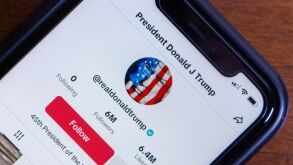Does exporting parts or components of a patented product for final assembly outside the country infringe the patent? Recently, the Korean Supreme Court answered this question for the first time in Korea in its decision 2014Da42110 (July 23 2015).
The patentee in this case had a patent directed toward a slide type mobile communication terminal. Nokia TMC, the accused infringer, manufactured half-finished products (parts) and shipped the unassembled parts of a patented mobile terminal abroad for assembly. As the exported parts were missing the essential element of the claims, manufacturing parts themselves were not a direct infringement of the patent. Therefore, the issue was whether exporting parts of a patented product for final assembly in a foreign country was an indirect patent infringement under the Korean Patent Act.
In Korea, the act of making, assigning, leasing, importing, or offering (for assignment or lease) articles used exclusively for making a patented product is considered to be an indirect infringement (Korean Patent Act, §127(1)). The Korea Patent Act only lists contributory infringement as a type of indirect infringement, and there is no inducement clause within the Korea Patent Act. If someone actively induces another person to infringe the third party patent, the active infringer might assume responsibility for torts under civil law.
This case concerned with whether assembling a final product in a foreign country can be considered as making articles used exclusively "for making a patented product". Under the principle of patent territoriality, the Supreme Court of Korea found that Nokia TMC was not liable for patent infringement because the "making [of a] patented product" occurred in a foreign country.
In Korea, indirect infringement occurs only when the manufactured articles are "used exclusively for making patented products". The burden of proof to prove exclusive use lies with the patentee. This was thought to be one of the limiting factors to claiming indirect infringement in Korea. Now, the Korean Supreme Court has made another requirement that the final product must be manufactured in Korea, clarifying the above decision and making the application of an indirect infringement somewhat narrower.
Territoriality and extraterritoriality of patent law have been discussed widely in many different countries, particularly regarding patent infringement. Korea does not have a provision like 35 USC §271 (f) of the United States which gives extraterritorial power to enforce the patent right. So, the above decision may be a reasonable interpretation of the current patent law in Korea.
The decision by the Korean Supreme Court will have substantial implications in the field of electronic devices or machines where it is not uncommon that parts or components are assembled in a third country where the cost is relatively low. The decision will have probably greater impact on global companies than domestic companies.
The Korean patent law may change in the future to protect the patentee more strongly in terms of indirect infringement as Korean society, both industry and intellectual property, seems to be keenly attuned with global trends. However, until the law actually changes, it is wise to continue seeking claims that can cover as many possible units, parts and components in the patent claims.
Min Son
Partner, Hanol IP & Law
HANOL Intellectual Property & Law
6th Floor, 163, Yang Jae Cheon-Ro, Gang Nam-Gu
Seoul 06302, Republic of Korea
Tel: +82 2 942 1100
Fax: +82 2 942 2600












